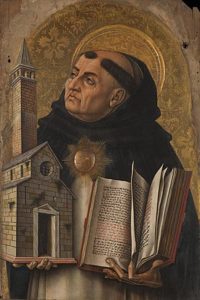The Inquisition as a subject belongs more to Karlheinz Deschner’s series, which I will continue in the future. I rather use Tom Holland’s book to show how Christianity inverted the values of the white man. But it is worth picking up other passages from the chapter we started quoting yesterday:
Anxieties in Paris were heightened by the discovery in 1210 of various heretics whose reading of Aristotle had led them to believe that there was no life after death. The reaction of the city’s bishop was swift. Ten of the heretics were burned at the stake. Various commentaries on Aristotle were burned as well. Aristotle’s own books on natural philosophy were formally proscribed. ‘They are not to be read at Paris either publicly or in private.’
One thing that is completely overlooked on the racial right is that it is impossible to heal after Christian infection unless we repudiate the doctrine of the immortality of the soul. No wonder the medieval freethinkers who began to question this dogma ended up at the stake. No fear of hell, no Church power.
But the ban failed to hold. In 1231, Gregory IX issued a decree that guaranteed the university effective independence from the interference of bishops, and by 1255 all of Aristotle’s texts were back on the curriculum. The people best qualified to learn from them, it turned out, were not heretics, but inquisitors. The days of annihilating entire towns on the grounds that God would know his own were over.
The author refers to Caedite eos: Novit enim Dominus qui sunt eius! (‘Kill them: the Lord knows those that are his own!’), a phrase reportedly spoken by the commander of the Albigensian Crusade to eliminate Catharism in France.
The responsibility for rooting out heresy had now been entrusted to friars. Taking the lead was an order that had been established by papal decree back in 1216, to provide the Church with a shock force of intellectuals. Its founder, a Spaniard by the name of Dominic, had toured where the good men were to be found, matching them in all their austerities, and harrying them in debate. In 1207, two years before the annihilation of Béziers, he had met with a good man just north of the city, and argued publicly with him for over a week. To friars schooled in this tradition of militant preaching, Aristotle had come as a godsend. [pages 265-266]
‘…before the annihilation of Béziers’. Holland refers to the massacre of so-called heretics at Béziers, France on 22 July 1209.
The labour of reconciling Aristotle’s philosophy with Christian doctrine did not come easily. Many contributed to it; but none more so than a Dominican called Thomas, a native of Aquino, a small town just south of Rome. The book he worked on between 1265 and his death in 1274, a great compendium of ‘things pertaining to Christianity’, was the most comprehensive attempt ever undertaken to synthesise faith with philosophy.
Thomas Aquinas himself died thinking that he had failed in his efforts, and that, before the radiant unknowability of God, everything he had written was the merest chaff; in Paris, two years after his death, various of his propositions were condemned by the city’s bishop. It did not take long, though, for the sheer scale of his achievement to be recognised and gratefully acknowledged. In 1323, the seal was set on his reputation when the pope proclaimed him a saint. The result was to enshrine as a bedrock of Catholic theology the conviction that revelation might indeed co-exist with reason. A century after the banning in Paris of Aristotle’s books on natural philosophy, no one had to worry that the study of them might risk heresy.
Yet this very sublimity had its shadow. If all of eternity were Christian, then it rendered those who persisted in the ways of heresy, obdurate in their folly, only the more damnable. The slaughter of the Albigensians had set a precedent that was not readily forgotten. [pages 266-267]
